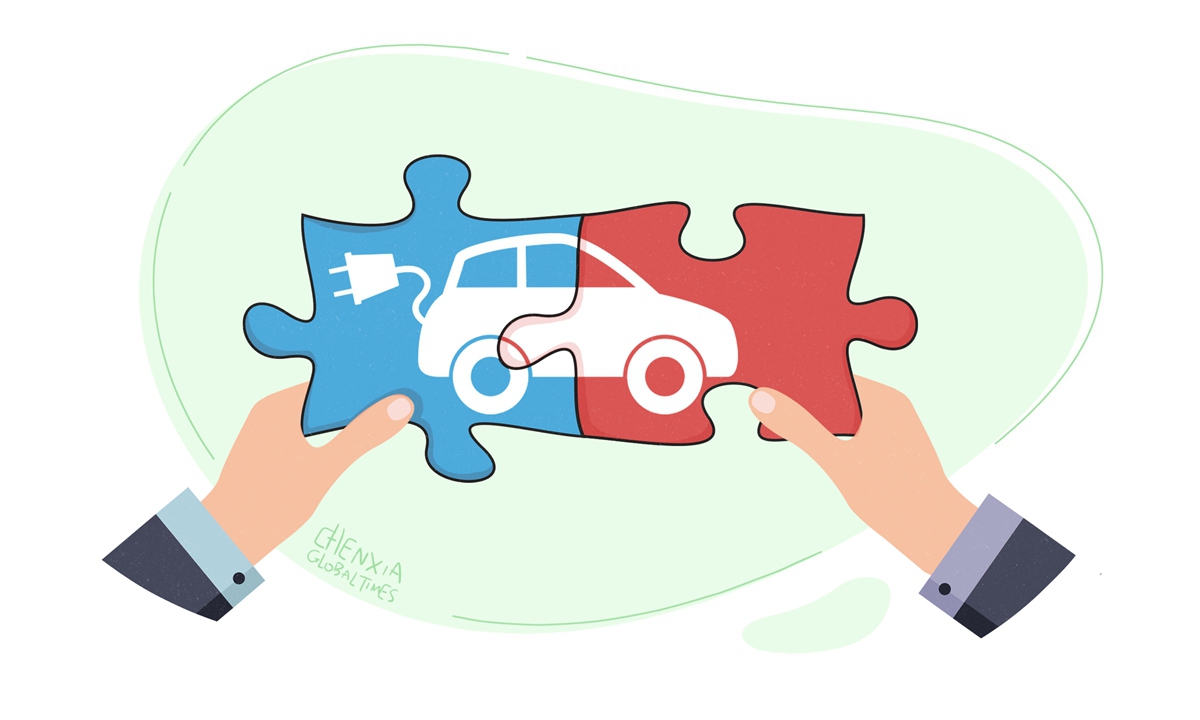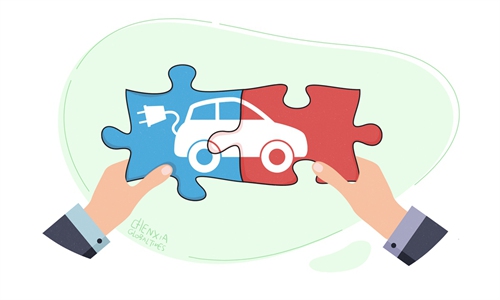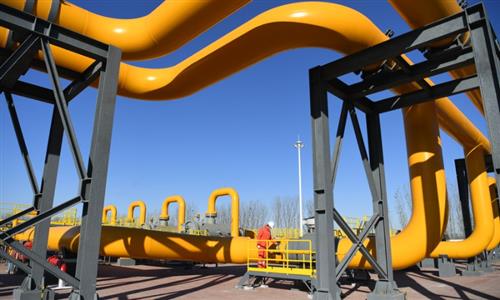
Illustration: Chen Xia/GT
Clean energy offers the EU a chance to boost its energy independence and sustainability, but to achieve a real energy transition, the EU needs to demonstrate greater determination to foster robust clean energy cooperation with China.Former European Central Bank chief Mario Draghi said on Tuesday that the EU must find the right balance on clean tech trade with China, Reuters reported. Relying on China to supply green products might be the EU's cheapest path to meet its climate ambitions, he told European Parliament lawmakers.
The remarks came just a few days after Draghi noted China's competition represents a threat to developing the bloc's productive clean industries.
To a certain extent, Draghi's views represent the ambivalence within the EU toward China's rising clean energy industry.
On the one hand, the industrial challenges confronting the EU economy are exacerbated by persistently high energy prices, underscoring the urgency of transitioning to green energy sources so as to retain and develop its own industry.
For the EU, this reality implies that in its pursuit of promoting a clean energy transition, lowering energy costs and bolstering energy security, the integration of Chinese products into its energy strategy is not merely advantageous but indispensable.
On the other hand, some in the EU are worried about the competitive pressure on the bloc's clean energy industry. This concern may help explain why, despite shared interests in the energy transition and the establishment of cooperation mechanisms between China and the EU, collaboration still encounters occasional barriers.
This situation is closely tied to the EU's multifaceted positioning on China.
However, the EU's hesitation regarding supply chain competition and the acceleration of the energy transition is in vain. High production costs in the EU are prompting European companies to invest in the US, which exacerbates deindustrialization in Europe and increases its dependence on the US. This trend undermines Europe's goal of achieving strategic autonomy. To improve this situation, it is essential to accelerate the energy transition, a process that cannot be realized without collaboration with China.
Thus, enhanced cooperation between China and the EU in clean energy not only helps protect and strengthen Europe's industrial base but also ensures the EU's long-term competitiveness in the global clean energy sector. The relationship between the clean energy industries of China and the EU extends beyond a simple import-export dynamic. Given the diverse landscape and wide array of technologies in the clean energy sector, no single country or company can monopolize the market.
This situation creates significant opportunities for collaboration between China and the EU.
For example, under the China-Germany dialogue and cooperation mechanism on climate change and the green transition, the two sides have initiated provincial-level cooperation on the green transition and established a working group on industrial carbon reduction. The two countries have also collaborated on demonstration projects to enhance energy efficiency in key sectors.
China's investments in green energy development also offer important cooperation opportunities for the EU. Many Chinese companies investing in EU countries are leading players in the green energy sector, providing a solid foundation for cooperation. For instance, the Senj Wind Farm, built by China's Norinco International Cooperation, produces about 530 million kilowatt-hours of green electricity each year, and reduces Croatia's carbon dioxide emissions by about 460,000 tons annually. The revenue from the operation of the wind farm has been used for investment in infrastructure, water supply, sewerage and beaches in Senj city.
The EU stands at a critical juncture in its pursuit of a sustainable and independent energy future. While the challenges posed by high energy costs and competitive pressures from China are significant, they also present an opportunity for transformative collaboration.



